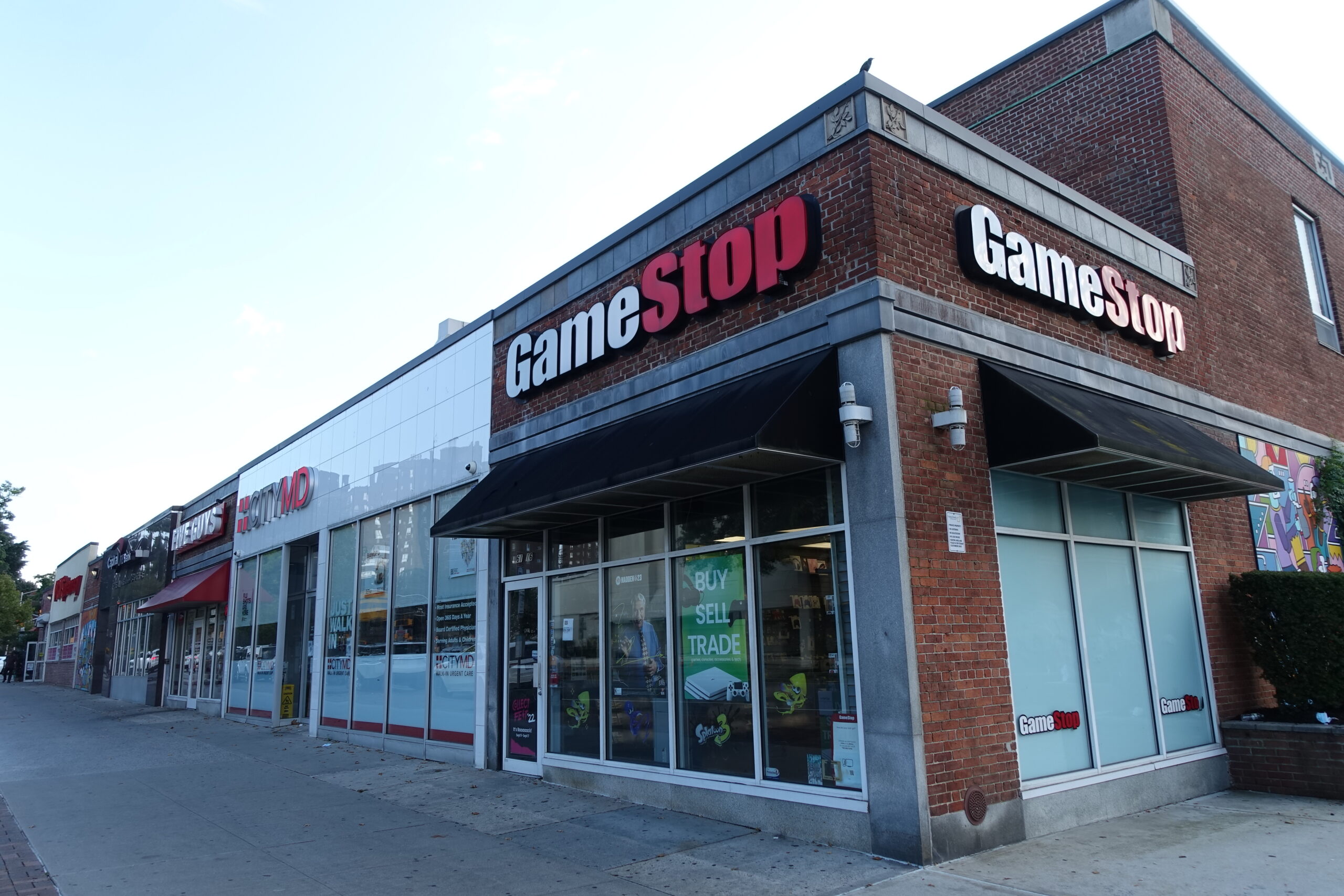People in and out of the business world were interested in the GameStop stock craze that started in early 2021. What began as a normal attempt by regular investors to take advantage of the way the market worked turned into a complicated and controversial event that put Wall Street’s usual power structure to the test. This piece goes into detail about the different parts of the GameStop scandal and looks at what it means for individual investors and the economy as a whole.
The Genesis of the Frenzy
The whole GameStop mess started with a group of individual investors getting together on Reddit’s WallStreetBets and other sites. These individual investors saw that big investors had a lot of short positions on GameStop, a struggling video game store. Short selling is a bet that the price of a stock will go down, which lets buyers make money from the drop.
When small buyers saw a chance, they worked together to drive up the price of the stock, which was called a “short squeeze.” When short sellers have to buy back shares to cover their bets, the stock price goes up even more. This is called a “short squeeze.” It became a symbol of the “little guy” going up against big financial companies, which made the GameStop craze even bigger.
Individual Investors: Empowerment or Risk?
The GameStop episode showed how individual investors can change the way standard financial markets work. The spread of financial knowledge to more people and the ease of using online trading platforms have given small investors the power to work together and challenge the status quo. This trend was boosted by the rise of commission-free trading platforms, which let regular people trade in markets without having to pay a lot of money.
But the GameStop craze also showed the dangers that come with this sudden power. Market manipulation claims were made, with some saying that the coordinated attempt to boost GameStop’s stock price was a type of market manipulation. The Securities and Exchange Commission (SEC) and other regulatory bodies started to look into what happened to see if any rules were broken.
Additionally, the unstable nature of GameStop’s stock price caused some individual buyers who bought the stock at high levels to lose a lot of money. Individual investors should learn from the unpredictability of these frenzies, which shows how important it is to do a lot of study and manage your risks.
Regulatory Responses and Market Dynamics
In answer to the GameStop craze, lawmakers and regulatory bodies thought about making changes to deal with the problems that come up when financial markets change. People talked about things like how open the market is, how social media affects trade, and how short selling works.
The SEC and other regulatory bodies thought about taking steps to make short positions and market actions more clear. Some of the suggestions were to make short positions more often reportable and to improve the ways information is shared so buyers can get up-to-date and correct information.
It also looked at how the market works, including how big investors and small traders interact with each other. Because of what happened with GameStop, the market structure and the possible need for changes to stop too much speculation and manipulation were looked at again. Some people wanted stricter rules, while others wanted to keep things in balance so that markets would remain open to everyone.
The Role of Social Media
The GameStop craze was helped along in part by the ability of social media to spread messages and coordinate activities. Retail investors could share information, talk about strategies, and plan their buying actions on online forums, especially Reddit’s WallStreetBets.
Social media was a big part of making financial information more accessible to everyone and giving small players more power, but it also made people worry about the spread of false information and market manipulation. The hard part for regulators is finding the right mix between protecting free speech and stopping people from abusing online platforms to game the market.
After what happened at GameStop, there were calls for more intense oversight of social media sites and the creation of tools to stop the spread of false or incorrect information. Regulators had to figure out how to deal with how quickly things change in online communication, where news can spread quickly and change how people feel about a market.
Impact on Wall Street and Institutional Investors
The GameStop craze shook Wall Street and changed the balance of power between traders and big investors. When GameStop stock went up, hedge funds that had sold a lot of shorts lost a lot of money because they had to pay high rates to cover their positions. This made people worry about the stability of hedge funds and the risks of short selling. Some people said that the GameStop scandal showed that there needs to be more institutional oversight and open short selling, which could affect the security of the market.
Institutional buyers’ risk management strategies were also called into question. The sudden rise in GameStop’s stock price showed how hard it is to manage risk when small buyers using social media can quickly work together to move the market.
After what happened at GameStop, institutional investors thought again about how they handle risk, especially how retail investors’ actions on social media affect their portfolios. It also made people in the banking industry talk about how to better evaluate risk and adjust to a market that is changing.
Market Efficiency and the Role of Speculation
Gamestop brought up old arguments about how the market works and financial gambling. Some people said that the sudden and big changes in the price of GameStop’s stock showed that the market wasn’t working well, but supporters of the idea of an efficient market said that those people were just unusual.
According to the efficient market theory, the prices of assets reflect all the available information. This means that investors can’t make above-average profits through aggressive trading or speculation. However, the GameStop incident makes people question how well the market works when coordinated speculation and social media stories affect it.
The financial world talks about the problem of how to balance market efficiency with speculative trade. The GameStop event showed that markets work well most of the time, but speculative forces can change that.
Long-Term Implications and the Evolution of Investing
The mess at GameStop is likely to have long-lasting effects on the financial world and how buyers think about the market. It showed how important it is to be flexible and how important it is for buyers, both large and small, to stay up to date on how the market is changing.
The GameStop episode made it clear to individual investors how important it is to do a lot of study, understand the risks of speculative trading, and manage their risks wisely. The event was a good lesson that taking action as a group can be a powerful way to question accepted norms, but it also comes with its risks and duties.
Institutional investors may rethink how they handle risk and change to fit the new world where small investors with information from online communities can affect how the market feels. The GameStop scandal made people rethink what they thought they knew about how markets work and made them realize how important it is to keep improving risk models to account for the unexpected.
Conclusion
The GameStop stock craze brought together individual investors, big investors, and the stock market. It demonstrated how private companies could deal with power systems and the difficulties of making money more accessible to everyone. There were instant effects on some individual and institutional investors from the GameStop scandal, but no one knows what the long-term effects will be. This event led to changes in regulations, more attention on the market, and a reevaluation of the financial industry’s risk management strategy.



No responses yet